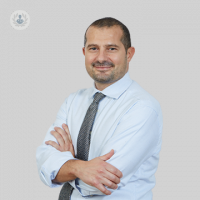Is it dangerous to leave PCOS untreated?
Autore:In this informative article, revered London-based consultant in obstetrics, gynaecology, and reproductive medicine, Dr Simone Rofena, speaks to us about polycystic ovary syndrome (PCOS), outlining the main symptoms, causes, and treatment options.

What exactly is PCOS?
It is a hormonal disorder which is quite common in women in and around the reproductive age. It is estimated to affect roughly 15 to 20 per cent of women of this age.
What are the main symptoms?
It is basically characterised by an excess of male hormones, which causes symptoms such as a lack of ovulation, irregular periods, acne, and an excess of facial and bodily hair.
What are the causes of PCOS?
The exact cause has not yet been determined. However, it is known that the condition tends to prevail in families with a history of polycystic ovary syndrome. It is normally associated with high levels of insulin (insulin resistance) which is also very common in patients with diabetes.
How dangerous is it to leave PCOS untreated?
I wouldn’t call it a dangerous condition. However, it can be a risk factor for conditions such as diabetes, and cardiovascular problems. PCOS, therefore, needs a multi-specialist approach when it comes to treatment, as it is a condition that not only affects a woman’s fertility.
What are the different treatment options?
The main aim of PCOS treatment is to restore a woman’s ovulation, which is the main problem caused by the condition. In most cases, this is not difficult to achieve.
I personally try to restore my female patients’ ovulation through the use of inositol, which is a vitamin that is able to restore ovulation in at least 50 to 60 per cent of cases after two months of regularly taking it.
If inositol doesn’t work, then another option could be to use some medications. As a last option, IVF would be considered. However, the vast majority of patients’ PCOS can be treated without the need for IVF treatment.
In some cases, it is also important to treat underlying contributing factors such as obesity, as this maintains a kind of vicious cycle. Losing weight can actually help restore irregular cycles.
Dr Simone Rofena can help you manage and treat polycystic ovary syndrome if you have been recently diagnosed with the common condition. Consult with him today via his Top Doctors profile to schedule in an appointment.



